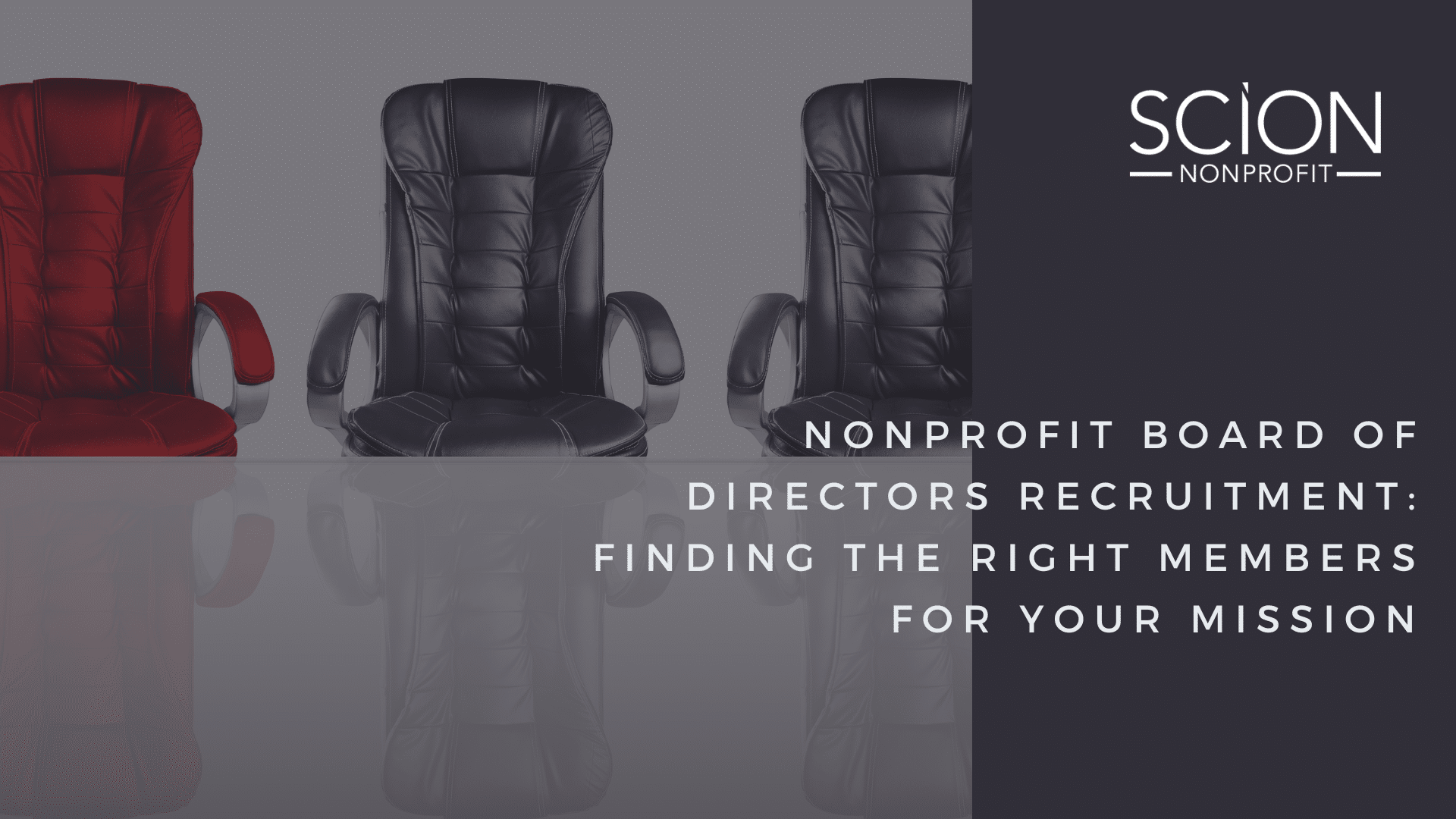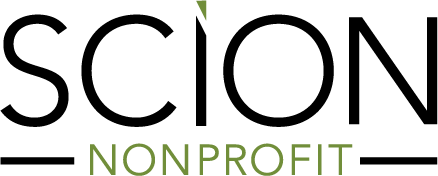
10 Jan Nonprofit Board of Directors Recruitment: Finding the Right Members for Your Mission
In the world of nonprofit organizations, staying ahead of the curve demands more than just passion; it requires astute leadership and robust governance. The landscape is shaped by fluctuating societal values, rapid technological developments, and economic uncertainties that nonprofits must navigate to remain effective. Amid these challenges, the board of directors plays a critical role—not merely as overseers, but as visionaries who chart the course for the organization. The most pressing challenge they face is recruiting board members who not only meet the skill requirements but are also a genuine fit for the organization’s mission and culture. A diverse board is essential for success. Diversity introduces a breadth of perspectives that can spark innovative solutions and more impactful problem-solving, reflecting the very community the nonprofit aims to serve.
In this guide, we’ll help you better understand the important role of nonprofit board members, how to build a stronger board culture, and how to identify the right members for your organization’s mission and goals.
What is the Role of the Nonprofit Board of Directors?
The responsibilities of a nonprofit board of directors extend far beyond routine oversight. Each board member position is accountable for guiding strategic planning, managing finances responsibly, and ensuring adherence to legal duties and ethical standards. Board duties include:
- Strategic Leadership: Developing long-term strategies that align with the organization’s mission. Setting short and long-term goals and evaluating progress regularly.
- Financial Oversight: Monitoring financial health, fiduciary responsibilities, and ensuring budgetary adherence as well as approving financial reports and audits.
- Compliance and Ethics: Ensuring the organization complies with applicable legal responsibility, laws, and regulations and promoting ethical behavior and accountability.
Beyond these duties, board members act as ambassadors, advocating for the organization within the community, fostering networks, and driving resource development. Board attendance is critical for charitable nonprofits that rely on the board of directors to drive their mission.
Defining Your Organization’s Needs
The foundation of a strong board lies in aligning its composition with the organization’s unique mission statement and goals, as well as having adequate resources to identify strong candidates. This involves assessing the current landscape and anticipating future needs by identifying the skills and expertise essential for success. Consider the following when looking for board candidates:
Skill Requirements
- Financial expertise, especially for budget oversight, creating financial statements, and fundraising initiatives.
- Legal understanding to navigate compliance and liability issues.
- Marketing, technology, and communication skills to enhance outreach and fundraising efforts.
Diversity, Equity, and Inclusion
- Ensuring the board reflects the demographic diversity of the community.
- Encouraging diverse opinions to enhance decision-making processes.
An actionable approach involves creating a matrix to outline the desired skills, experience, and demographics needed for your open board member roles. Regularly review this matrix to guide your recruitment efforts and ensure the board’s makeup evolves in step with the organization’s needs and goals.
Leveraging Technology for Recruitment
In today’s interconnected world, technology is a vital ally in board member recruitment. Digital platforms provide expansive opportunities to broaden your search and connect with potential candidates who are as passionate about your mission as you are.
Online Platforms and Social Media
LinkedIn and other professional networks help highlight the nonprofit’s impact and attract passionate individuals. Social media campaigns can target specific demographics and skill sets.
Digital Tools for Outreach
Use CRM systems to efficiently manage candidate information and interactions. Host virtual events to engage a wider audience and break geographical barriers. Embracing virtual board meetings and remote work can also attract professionals who are otherwise constrained by location or time, expanding your pool of available candidates significantly. This can create a successful board with a modern flare.
Building a Strong Board Culture
Creating a cohesive and productive board culture is imperative for long-term success. This entails fostering an environment where open communication is encouraged, and diverse viewpoints are valued. Consider the following strategies to help build a better board:
Promoting Inclusivity and Respect
Encourage open dialogue and actively listen to different perspectives. Regularly assess and improve board dynamics through feedback and reviews.
Ongoing Professional Development
Offer workshops, seminars, and retreats tailored to governance and leadership. Provide opportunities for members to enhance their skills continuously.
Active Participation and Engagement
Clearly define expectations for meeting attendance and participation in job descriptions. Celebrate achievements and milestones to build morale and commitment. This proactive approach to board culture not only enhances member engagement but also boosts retention, fostering a more stable and effective leadership team.
Engaging Younger Generations
To remain relevant, nonprofits must engage and retain younger generations, namely, Millennials and Gen Z. These generational groups are known for their desire to make an impactful difference, and their affinity for technology-driven solutions. Recent studies have shown that Gen Z groups are engaging more in philanthropy, but with organizations that they are familiar with and match their interests. Here are some ways to attract and engage younger generations into becoming board members and officers:
- Flexible Meeting Formats: Offer remote participation options and flexible scheduling to accommodate busy lifestyles. This is also a way to promote work-life balance in your organization, which can trickle down into the rest of the workforce. This is a great way to build trust and confidence among the younger generations.
- Targeted Recruitment Strategies: Leverage platforms that resonate with younger demographics, such as Instagram or TikTok, to share impactful stories. Influencer marketing is a great way to touch base and build relationships with the social media crowd. Highlight opportunities for meaningful engagement, educate viewers on board roles, and encourage leadership development.
- Mentorship Opportunities: Create mentorship pathways that pair young board members who are interested in nonprofit management with experienced leaders. Ensure these programs foster leadership growth for potential board members and continuity within the board leadership.
By addressing the unique needs and preferences of younger generations, nonprofits can infuse fresh energy and perspectives into their boardrooms.
Best Practices for Identifying Potential Board of Directors Members
Learning from the successes and missteps of others can provide invaluable insights into effective board recruitment and retention strategies. Here are some key takeaways on how to identify your next addition to your board of directors:
- Thorough Vetting Process: Implement a robust screening process to ensure candidates align with your mission and values.
- Clear Role Definition: Establish and communicate clear roles, board term limits, and key responsibilities from the outset to prevent confusion and friction.
- Ongoing Evaluation: Conduct regular assessments of board effectiveness and individual contributions to foster a culture of continuous improvement.
By adhering to these best practices and executing a strategic plan, organizations can form a board that is not only adept but also agile and resilient.
Scion Nonprofit: Your Partner for Investing in Board Development
Investing in board development is not just a wise decision—it’s a critical component of nonprofit success. A strong board of directors is instrumental in steering organizations toward achieving their goals, and continual investment in their development ensures long-term viability and impact. Scion Nonprofit is committed to supporting this journey for nonprofits across the country.
Our team’s expertise in identifying and recruiting top board talent is backed by award-winning services that connect organizations with qualified candidates nationwide. Get in touch with us today to enhance your board recruitment strategy and explore our resources tailored for nonprofit leaders. Allow us to help you build a board of directors that not only aligns with your mission but propels your organization into the future.
About the Author
Patrick Chiotti (he/him) is an accomplished SEO writer and is currently the Marketing and Communications Specialist at Scion Staffing, bringing years of experience in SEO knowledge and a passion for writing to the Scion team. With additional experience in customer service roles, retail, and accounting, Patrick brings a unique set of knowledge and skills to his role while sharing the passion to continue learning about a wide range of topics so he can share his voice to a larger audience. Outside of Scion, Patrick spends his time as a football coach at the high school level and is passionate about teaching the game, while remaining a student to it. He is also a husband and father, and enjoys fitness, as well as a passion for cooking amazing food.




